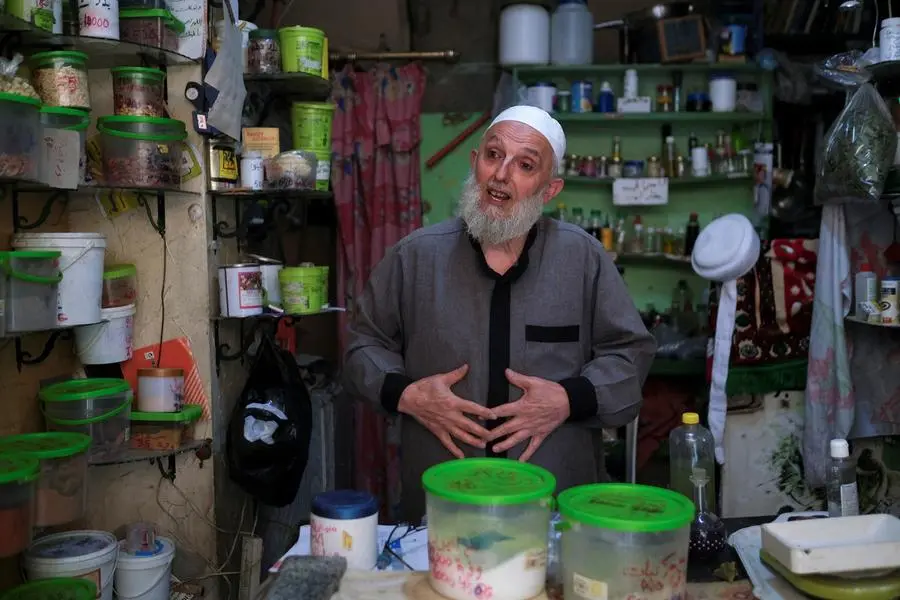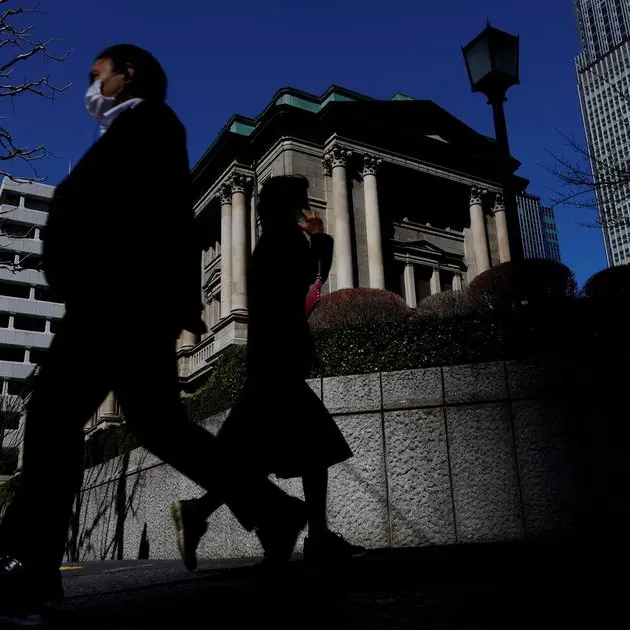PHOTO
TRIPOLI - Once a gymnastics instructor, Mohammad Abadeen now runs a small apothecary in Lebanon's north, offering affordable plant-based treatments to clients tired of chronic medicine shortages and price hikes.
The craft dates back thousands of years and is known as alternative or herbal medicine - relying on concoctions made from herbs, spices, and natural oils in an attempt to treat ailments including colds, coughs and stomach bugs.
Abadeen comes from a family of apothecarists in the northern port city of Tripoli and, nearly three years into Lebanon's economic meltdown, demand is rising.
"When prices started to increase, people began resorting to this alternative medicine," the 53-year-old said.
Lebanon's currency has lost more than 90% of its value since 2019, while medication prices have risen fourfold, according to an Amnesty International report from December, 2021.
In September, the United Nations warned that healthcare was out of reach for 33% of households in Lebanon. More than half of them were unable to obtain medicine, either because it was too expensive or no longer stocked at pharmacies.
Weeks later, Lebanon's cash-strapped government lifted subsidies on most medicines - including those to treat chronic illnesses including cancer - pushing prices up even further.
Tripoli, in particular, has been hard hit by the financial maelstrom -- the port city was ranked the poorest on the Mediterranean by the United Nations even before the crisis began.
NOT SUBSTITUTION
Abadeen said his customers came in "exhausted... between the various medications, blood tests, and check-ups" - so he offers alternatives such as zoubai, a native herb similar to thyme which can be brewed into tea to soothe a sore throat.
People are even turning to plant-based remedies for more serious ailments, said apothecarist Omar al-Rafie.
"Diabetes medications now cost around one million Lebanese pounds," Rafie said -- almost twice the country's minimum monthly wage of around 600,000 pounds.
"Someone could buy a herb from us instead for about 50,000 pounds," the 48-year-old herbalist added.
Lebanon's health ministry was aware of cancer patients using herbal remedies because their treatments were no longer accessible, caretaker health minister Firas al-Abiad said, warning of the dangers.
"This is worrisome. This is not a substitution, and many people do not understand this," he told Reuters.
While pharmaceuticals go through rigorous testing to determine efficacy and possible side effects, there is no standardised process for herbal remedies.
Lebanon's lack of a central lab to run its own tests or issue regulations leaves the door open to widespread abuses of "unchecked substances" like plant-based treatments, Abiad said.
Joe Salloum, the head of Lebanon's pharmaceuticals syndicate, said the occasional use of herbal concoctions could provide relief - but an unregulated dosage could pose health risks.
"When does it become dangerous? When it's used in a concentrated way, when someone pushes it into a capsule and uses it in the wrong way or with the wrong dosage," Salloum said.
Omar al-Ali, a pharmacist in Tripoli, said his customers buy pills by the sachet as they can no longer pay for an entire box, and more of them ask for plant-based remedies.
"It used to be a minority, but it's slowly increasing as people try to run away from the extreme cost of medicine," Ali said.
Nor have apothecaries been spared the price hikes.
After getting supplies from places like India and China, many have had to reduce imports from abroad as they are priced in U.S. dollars, now much stronger than the Lebanese pound.
"We've been getting only what is necessary instead of stocking widely like we used to," said apothecarist Kamal al-Shahal.
(Additional reporting by Maya Saad and Issam Abdallah; Editing by Maya Gebeily and Ed Osmond)





















